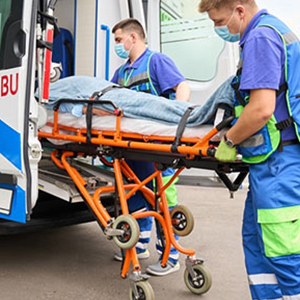Polytrauma refers to the simultaneous presence of multiple injuries in a patient, often resulting from severe accidents such as car crashes, falls from significant heights, or high-impact sports incidents. These injuries can affect various body systems and organs, ranging from minor to life-threatening. The management of polytrauma at Polytrauma hospital in Vijayawada requires a multidisciplinary approach, involving various medical specialists working together to stabilize the patient, address each injury, and ensure optimal recovery.
Polytrauma patients are typically treated in specialized trauma centers, where a team of healthcare professionals, including emergency physicians, surgeons, anesthesiologists, radiologists, and intensive care specialists, work together to provide comprehensive care. The primary goal during the initial phase is to stabilize the patient by addressing life-threatening injuries and ensuring adequate oxygenation, circulation, and neurological function.
The management of Accident trauma care in Vijayawada can be divided into three main phases:

Resuscitation: This phase focuses on stabilizing the patient's vital signs, controlling bleeding, and preventing further injury. It begins with the ABCDE approach - Airway, Breathing, Circulation, Disability, and Exposure. The patient is closely monitored, and necessary interventions, such as blood transfusions, fluid resuscitation, and ventilation support, are provided to maintain physiological stability.
Damage Control Resuscitation (DCR): In cases where the patient's condition is critical, Damage Control Resuscitation is employed. This approach involves limiting fluid resuscitation to prevent excessive blood loss and minimize the risk of complications, such as acute respiratory distress syndrome (ARDS) and multiple organ dysfunction syndrome (MODS). Instead, focused interventions, such as damage control surgery and temporary abdominal closure, are performed to control bleeding and stabilize the patient.
Definitive Care: Once the patient's condition is stabilized, the focus shifts to addressing each injury individually. This may involve surgical interventions, such as fracture fixation, debridement of damaged tissue, or organ repair. Rehabilitation plays a crucial role in the recovery process, with physical therapy, occupational therapy, and psychological support aimed at helping the patient regain mobility, function, and independence.
The recovery process for polytrauma patients can be long and challenging, often involving multiple surgeries, extended hospital stays, and rehabilitation. The patient's progress is closely monitored, and ongoing care is provided to manage complications, minimize scarring, and restore the patient's quality of life.
In conclusion, polytrauma is a complex medical condition that requires immediate and coordinated care from a multidisciplinary team of healthcare professionals and Accident emergency doctors in Vijayawada . The management of polytrauma involves a three-phase approach, starting with resuscitation, followed by damage control resuscitation, and finally, definitive care. The ultimate goal is to stabilize the patient, address each injury, and ensure optimal recovery, acknowledging the physical, emotional, and psychological challenges faced by polytrauma survivors.
